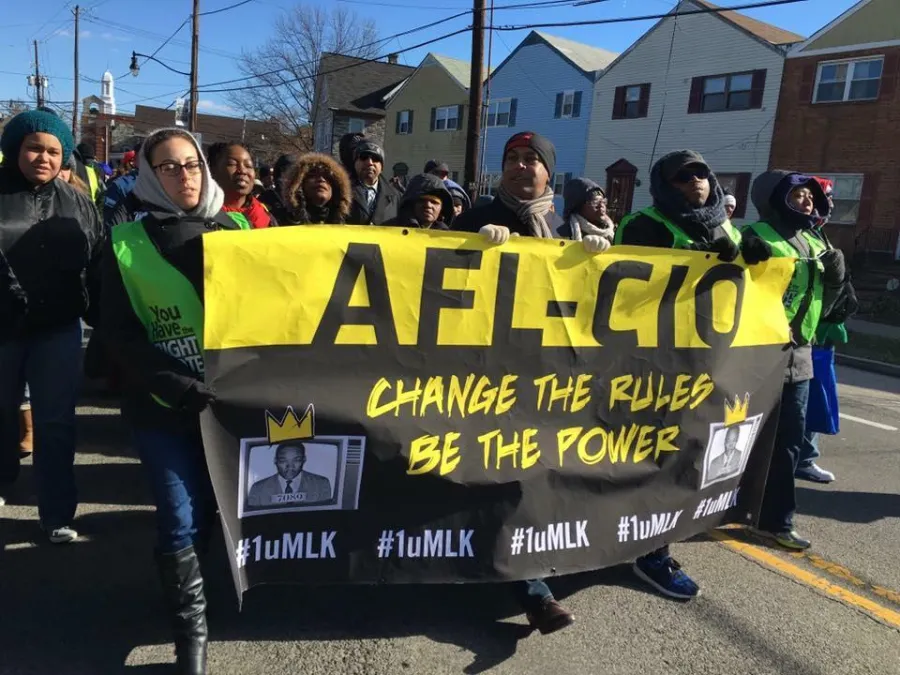Black History is Deeper and Longer Than a Month

Once again the shortest month in the year is dedicated to Americans whose ancestors were systematically exploited, oppressed, and enslaved. Our rich history, diasporic influence, cultural imprint, and social impact have been reduced to a month, while our legacy has been omitted from history books. How do we take 29 days to tell the tale of 400 years? How do we consolidate our experience that encompasses multiple continents, numerous generations, and centuries of anguish into a shortened calendar month? We do it by existing, by striving, by surviving.
We stand on the shoulders of giants like Malcolm X, Fannie Lou Hammer, and Nat Turner. We stay above water on the bones of our ancestors who were dumped in the ocean. Our legacy is our history. Our survival is our celebration. Black history is deeper and longer than a month.
This month we face some serious challenges. We are forced to construct our narrative in the hostile environment we call the American political system. There has been no decrease in the violence our community faces. There has been no national program to bridge the divide between law enforcement and communities of color. Presidential candidates have polarized the voting populace and are either targeting us like pawns to win delegates or singling us out to blame for what is wrong with this nation. With such vitriol it appears the first Black president may also be the last Black president. Yet with this tornado of self-interest around us, we find that we still can't get jobs, we may have healthcare but no access to healthcare facilities, and we have a better chance of going to prison than getting a college degree. Looking at the climate today many find it disheartening. It is an environment that's conducive to breeding apathy, much like dark damp places breed mold. If we only look at the current picture our hearts weigh heavy but we must always remember we come from a people who never quit, who never gave up. Our community's relationship with law enforcement is bad but never as horrible as that between us and the overseer. Our healthcare is abysmal but no longer like the Tuskegee experiments. This is not to say we have it good, but rather to point out we have survived worse and will continue to beat the odds. We are a people that have traversed oceans and came out kicking.We stand on the shoulders of giants like Malcolm X, Fannie Lou Hammer, and Nat Turner. We stay above water on the bones of our ancestors who were dumped in the ocean. Our legacy is our history. Our survival is our celebration. Black history is deeper and longer than a month. But on this month revel in the beauty and greatness of our culture and existence. Celebrate our success while planning the next steps. Let our voices be heard in the pulpit, the union hall, and the ballot box. Support our brothers and sisters and institutions that have empowered us. Take these next few days to relish in the legacy and lineage that is Black History. Listen to some Elvis Presley to hear how we shaped Rock and Roll, watch someone twerk to see how we influence dance, and take in some Macklemore to appreciate how we built rap. Take the next few days to celebrate because there is more work ahead of us.
In Solidarity,
Rev. Terry Melvin
President, Coalition of Black Trade Unionists
Secretary-Treasurer New York State AFL-CIO
---------------
CBTU, which was founded in 1972, is the largest, independent voice of more than 2.2 million African American workers in labor unions today. With more than 50 chapters in major U.S. cities and one in Ontario, Canada, CBTU is dedicated to addressing the unique concerns of black workers and their communities. CBTU is a strong supporter of low-wage workers who are fighting for respect and the right to have a voice on their jobs. In 2007, CBTU provided critical early union support for Barack Obama's historic campaign for the Democratic Party's presidential nomination in 2008, introducing him to black voters who were very skeptical then that an African American could ever reach the Oval Office. CBTU went on to galvanize tens of thousands of African American voters and union households in key states on behalf of President Obama's victorious campaigns in 2008 and 2012.Rev. Terry L. Melvin, who was elected to lead the Coalition of Black Trade Unionists in 2012, is also the secretary-treasurer of the powerful New York State AFL-CIO. He succeeded CBTU President Emeritus William (Bill) Lucy, the iconic labor leader who co-founded CBTU in 1972.
For more information visit www.CBTU.org
